You’re probably wondering which business intelligence jobs are in demand right now. Here are the top 10 roles you should check out:
Most companies need you to analyze data, build reports, and guide decisions. Skills like SQL, Python, and dashboard design help you stand out. Salaries range from $58,000 to $112,000 per year, with cities like Los Angeles offering up to $96,745. Major employers are hiring faster than ever, especially as platforms like FanRuan and FineBI make analytics more accessible. If you’re a business analyst or just starting out, now’s the time to explore these opportunities.
| Category | Salary Range / Amount (USD) |
|---|---|
| Average Base Salary | $58,000 - $107,000 per year |
| Median Base Salary | $78,000 per year |
| Total Compensation Range | $58,000 - $112,000 per year |
| Entry-Level Total Comp. | Approximately $65,489 |
| Los Angeles Base Salary | $89,530 |
| Los Angeles Total Comp. | $96,745 |
Every demo in this article was designed using FineBI. Ready to unlock smarter insights? Click below to start your free FineBI trial and see what’s possible!
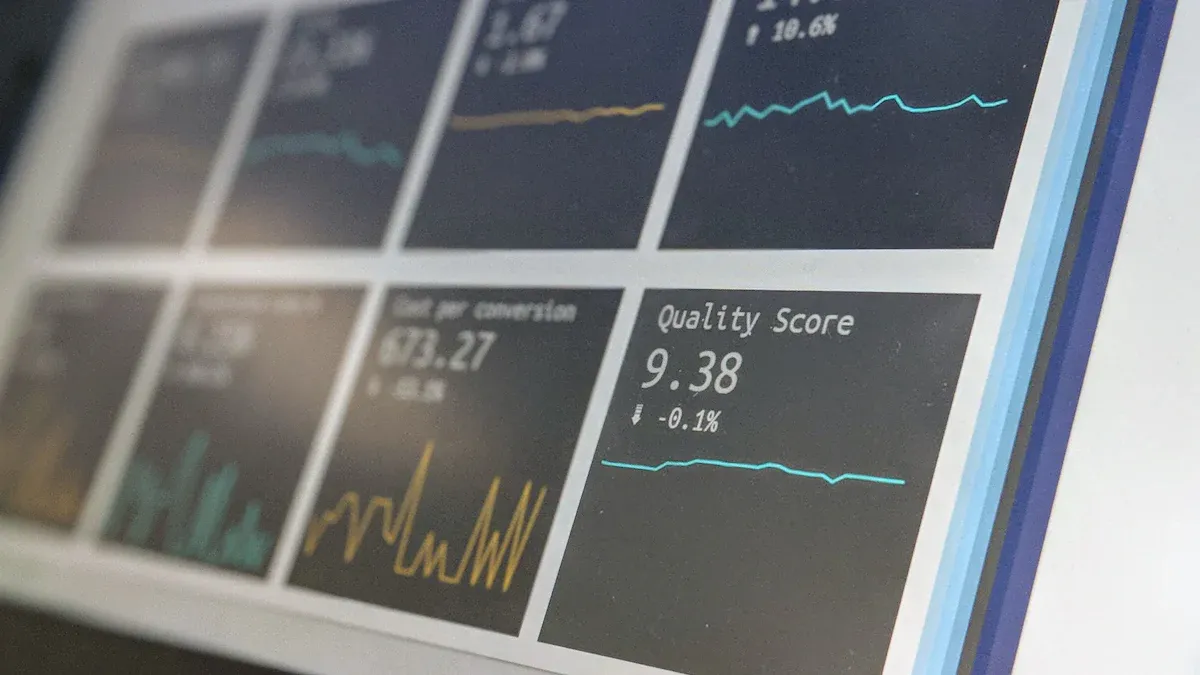
You’re living in a world where data shapes almost every business move. Companies want to make smarter choices, so they look for people who can turn raw data into clear insights. The demand for business intelligence jobs keeps rising. In fact, experts predict a 21% growth rate for BI analyst roles from 2018 to 2028. That’s much faster than most other fields. Why is this happening? Several industries are driving this surge, including:
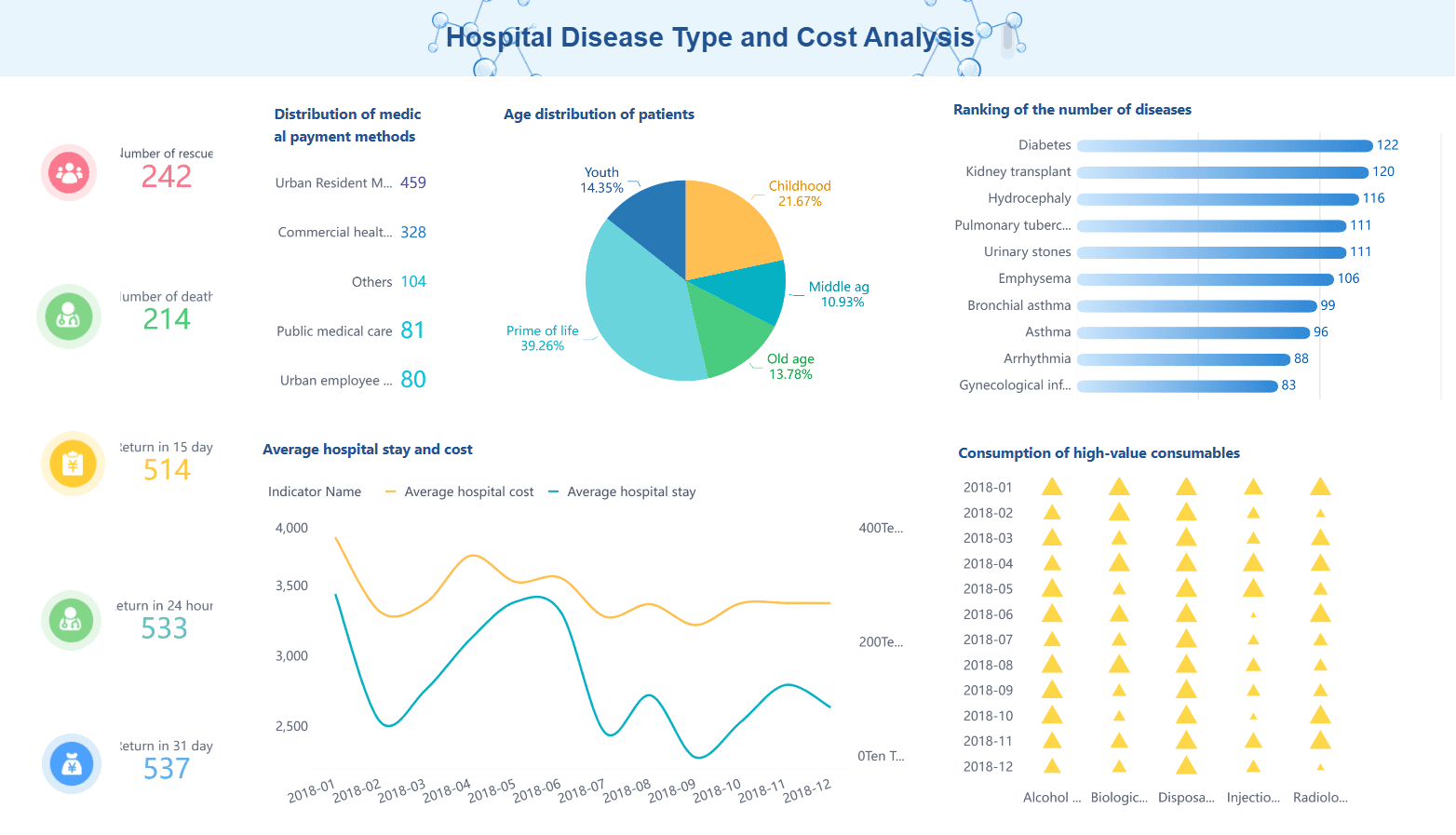
You see this trend everywhere. More companies want to use data to stay ahead, so they need skilled people who understand both technology and business.
You probably notice that data-driven decision-making is now the norm. Leaders don’t just guess anymore. They use data to guide hiring, marketing, and even daily operations. This shift means you need to know how to collect, clean, and analyze data. Companies use data-driven decision-making to spot trends, predict what customers want, and fix problems before they grow. They also use data to compare themselves to competitors and plan for the future. If you can help a business make better choices with data, you become a valuable asset.
Data-driven decision-making also changes how companies hire. HR teams use data to find skill gaps, benchmark against other companies, and plan for new roles. With the right data, they can spot hiring trends and act fast. You’ll find that organizations now expect you to use data in almost every part of your job.
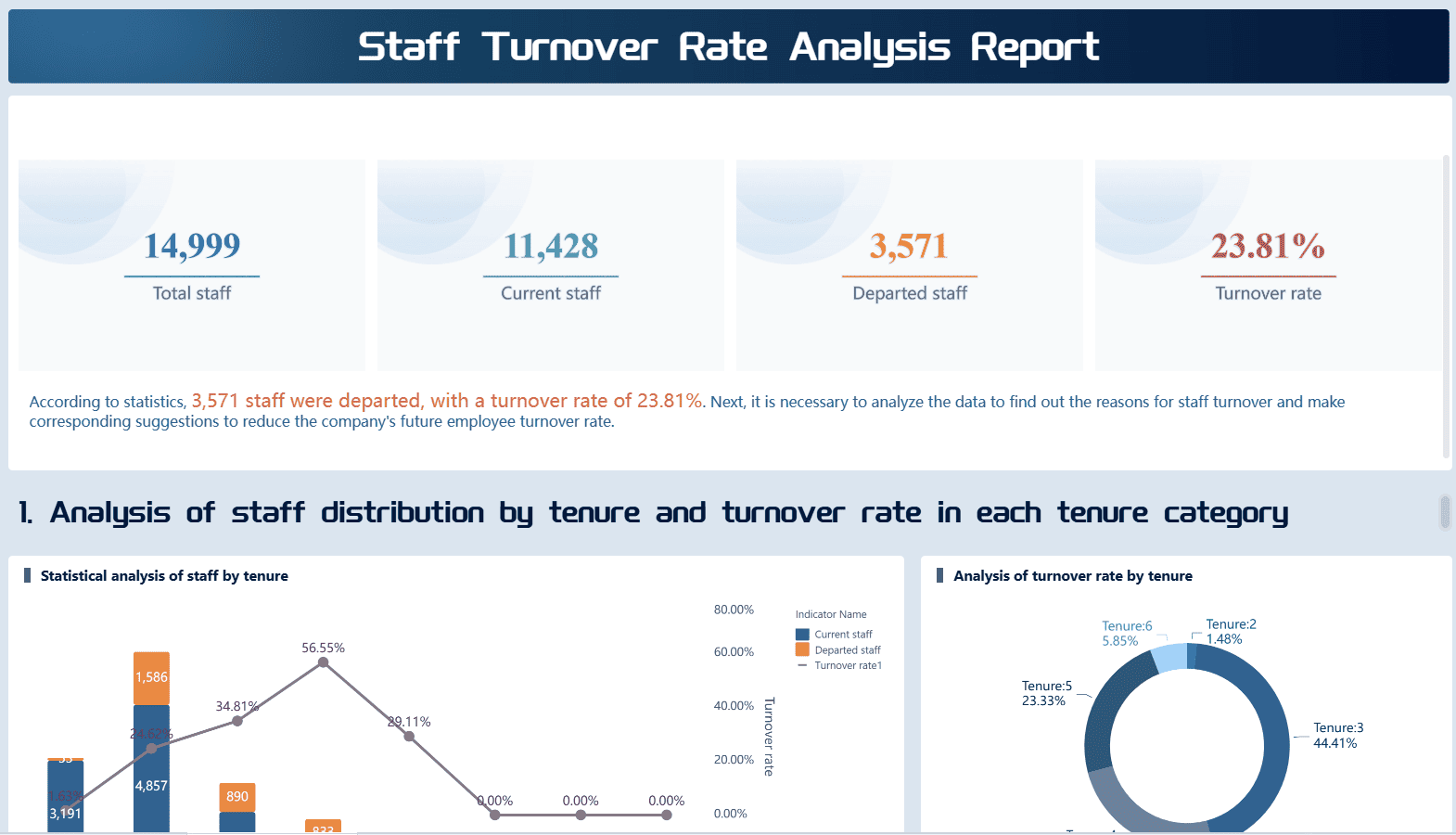
You don’t need to be a tech wizard to work with data anymore. Self-service BI tools like FineBI from FanRuan make it easy for anyone to explore and visualize data. These tools let you build dashboards, run reports, and share insights without waiting for IT support. Large companies and small businesses both use these tools to speed up data-driven decision-making.
Here’s a quick look at how self-service BI tools are changing the game:
| Aspect | Details |
|---|---|
| Adoption Rate | 59% of large enterprises use self-service BI |
| Growth Rate | 15% CAGR expected through 2032 |
| Key Benefit | Empowers non-technical users |
| Pandemic Impact | Boosted remote data access and collaboration |
With self-service BI, you spend less time waiting for reports and more time making decisions. As a result, business intelligence jobs now focus more on data governance, training, and supporting business users. You help others use data correctly, making you a key player in any organization.

You help companies make sense of their data. As a business intelligence analyst, you turn numbers into stories that guide business decisions. You work with tools like FineBI from FanRuan to connect different data sources and build dashboards. Your job is to find trends, spot problems, and help teams understand what the data means.
Tip: Using self-service BI tools like FineBI lets you create dashboards quickly and share them with your team.
You need strong math and computer skills. Most business intelligence analyst jobs ask for a degree in mathematics, computer science, or a related field. You should know how to use SQL and manage databases. You need to prepare, mine, and visualize data. Communication is important because you explain your findings to people who may not know much about data. Certifications like CompTIA Data+ can help you stand out.
Key skills you need: 1. Data preparation and cleaning 2. Data mining and pattern discovery 3. Statistical analysis 4. Descriptive analysis 5. Data visualization and dashboard creation

Level Up Your Data Analytics Skills—Starting Today!
Download our exclusive Data Analyst Learning Materials filled with tips, examples, and insights.
Here’s what you can expect to earn as a business intelligence analyst:
| Salary Metric | Amount (USD) |
|---|---|
| Average Base Salary | $88,015 |
| Average Additional Cash Compensation | $8,897 |
| Average Total Compensation | $96,912 |
| Minimum Salary | $10,000 |
| Maximum Salary | $175,000 |
| Most Common Salary Range | $90,000 - $100,000 |
You might start at $70,000 and move up to $125,000 or more with experience.
You dig into data and find answers to business questions. As a data analyst, you transform raw data into useful insights. You use SQL, Python, and BI tools like FineBI to explore data sets. You help teams understand what is happening in the business and why.
Note: FineBI makes it easy for you to connect to databases, upload files, and visualize data without coding.
You need strong communication skills to share your findings. You should be curious and always want to learn more about data. Problem-solving and critical thinking help you spot trends and fix issues. You need to know SQL and sometimes Python or R. You should be able to use Excel, SPSS, or SAS for analysis.
Skills you need as a data analyst:
Most data analyst jobs pay between $60,000 and $100,000 per year. Your salary depends on your experience and location.
| Job Title | Role Summary | Salary Range (USD) |
|---|---|---|
| Data Analyst | Transforms raw data into insights, uses tools like SQL, Power BI, Tableau, collaborates cross-functionally. | $60,000 - $100,000 |
You use advanced math and computer skills to predict what will happen next. As a data scientist, you build models and use machine learning to find patterns in data. You help companies make smart choices by showing them what the data says about the future.
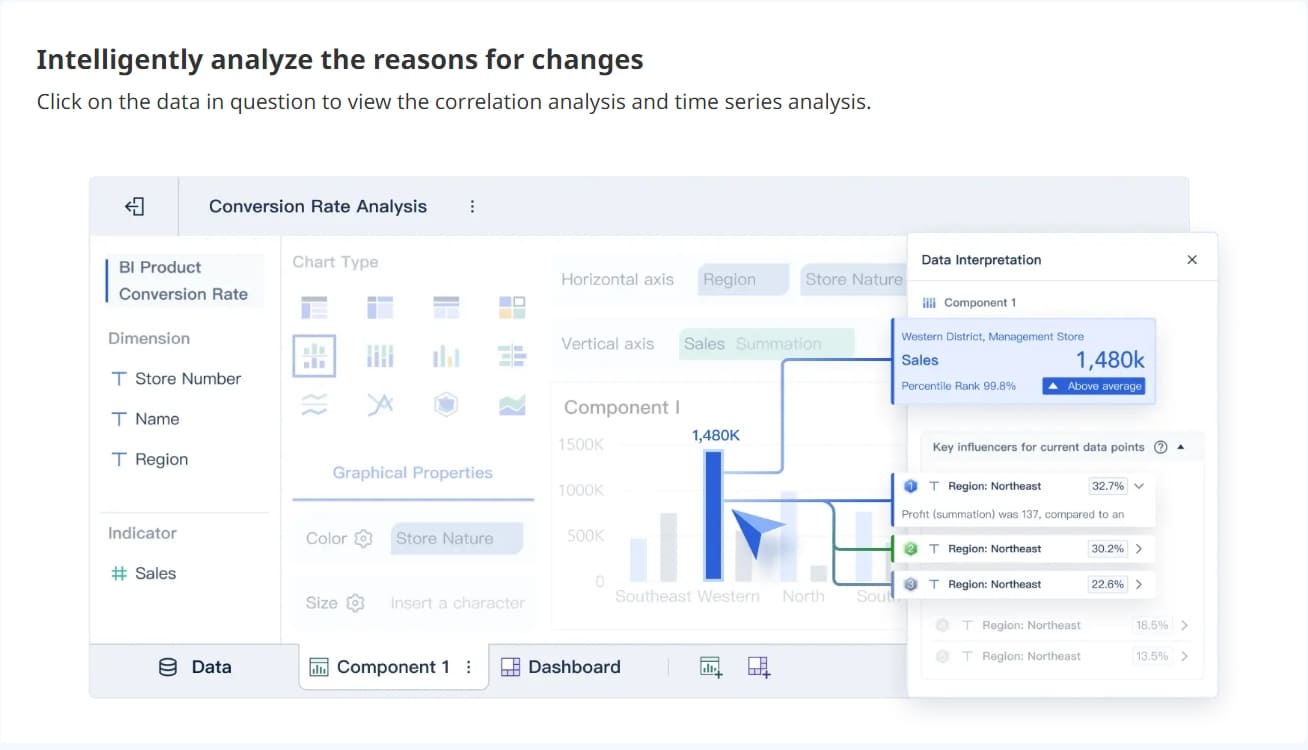
Tip: FineBI supports advanced analytics and can help you visualize complex data models.
You need a strong background in math, statistics, and computer science. You should know how to use Python, R, and SQL. You need to understand machine learning and predictive analytics. Communication is key because you explain complex ideas to people who may not know much about data.

FineBI comes with a built-in ChatBI module — simply ask questions in natural language and get instant, powerful data analysis
Skills you need as a data scientist:
Data scientist salaries vary a lot. You can expect to earn from $90,000 to $150,000 or more, depending on your experience and the company.
| Job Title | Role Summary | Salary Range (USD) |
|---|---|---|
| Data Scientist | Applies statistical and machine learning techniques for predictive analytics. | $90,000 - $150,000 |
You play a crucial role in the business intelligence world as a data engineer. You build the foundation that allows companies to use their data effectively. You design and maintain systems that collect, store, and process information from many sources. You make sure data is clean, organized, and ready for analysis. You often work with tools like FineBI from FanRuan to connect databases, automate workflows, and support analytics teams.
Your day-to-day work as a data engineer involves many tasks. You focus on making data accessible and reliable for everyone in your organization.
Tip: FineBI and FineDataLink help you streamline data integration, automate ETL processes, and ensure high-quality data for business intelligence.
You need strong technical skills to succeed as a data engineer. You should know how to use Python, SQL, and big data tools like Hadoop and Spark. You must understand data modeling, ETL processes, and data governance. Communication matters because you work with analysts, scientists, and business users. You also need to stay updated with new technologies and best practices.
Key skills for you:
You can expect competitive pay as a data engineer. In the United States, salaries range from $90,000 to $140,000 per year, depending on your experience and location. Senior data engineers often earn more, especially in tech hubs like San Francisco and New York.
| Experience Level | Salary Range (USD) |
|---|---|
| Entry-Level | $90,000 - $110,000 |
| Mid-Level | $110,000 - $130,000 |
| Senior | $130,000 - $140,000+ |
You transform business needs into actionable insights as a bi developer. You design, build, and maintain dashboards and reports that help teams make smart decisions. You work closely with business users to understand their requirements. You use tools like FineBI from FanRuan to create interactive visualizations and automate reporting.
Your main goal as a bi developer is to turn raw data into clear, useful information. You focus on usability, performance, and integration.
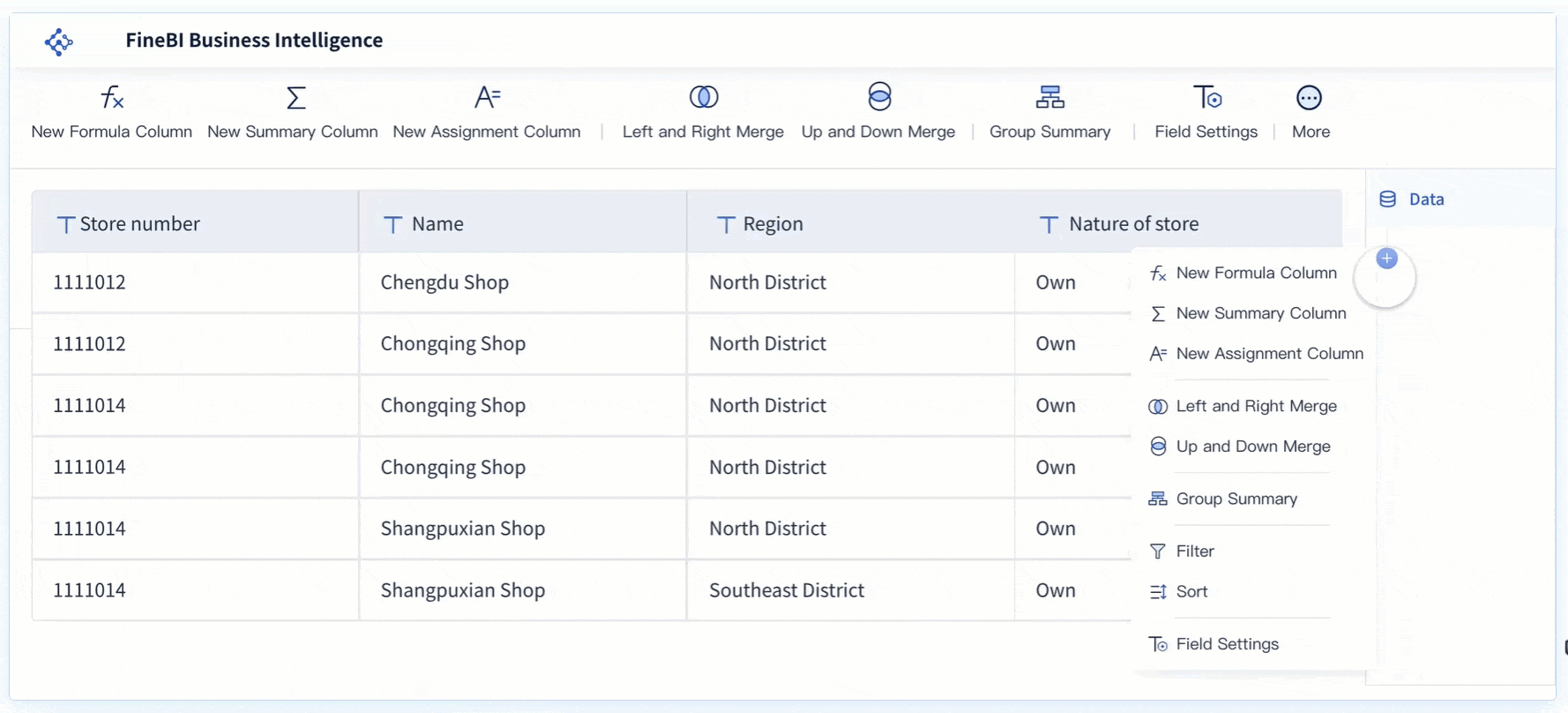
Note: FineBI’s drag-and-drop dashboard builder lets you deliver insights quickly, even if you don’t have coding experience.
You need a mix of technical and business skills as a bi developer. You should know SQL, Python, and BI platforms like FineBI, Power BI, or Tableau. You must understand data modeling, ETL, and visualization best practices. You also need strong communication skills to work with business users and IT teams.
Skills you need:
You can earn a solid salary as a bi developer. In the United States, the average salary is around $110,000 per year. Entry-level roles start at $70,000, while senior positions can reach $140,000 or more. Top-paying cities include San Francisco, Seattle, and New York.
| Category | Details / Salary Range |
|---|---|
| Overall Average Salary | Approximately $110,000 per year |
| Entry-Level | $70,000–$90,000 |
| Mid-Level | $95,000–$115,000 |
| Senior | $120,000–$140,000+ |
| Top Cities | San Francisco: $135,000 |
| Seattle: $130,000 | |
| New York: $125,000 |
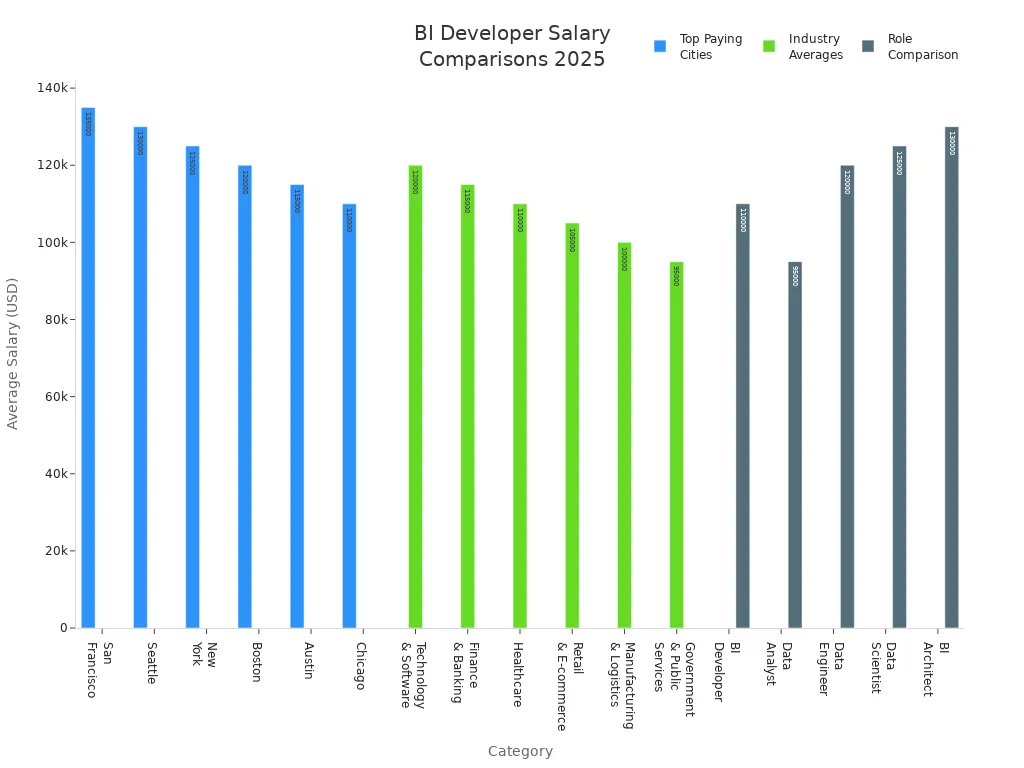
You lead the analytics team and guide the company’s data strategy as an analytics manager. You set goals, manage projects, and make sure your team delivers valuable insights. You work with business leaders to align analytics with company objectives. You often use platforms like FineBI to monitor performance and share results.
You oversee analytics projects from start to finish. You manage people, budgets, and timelines. You make sure your team uses data to solve business problems and drive growth.
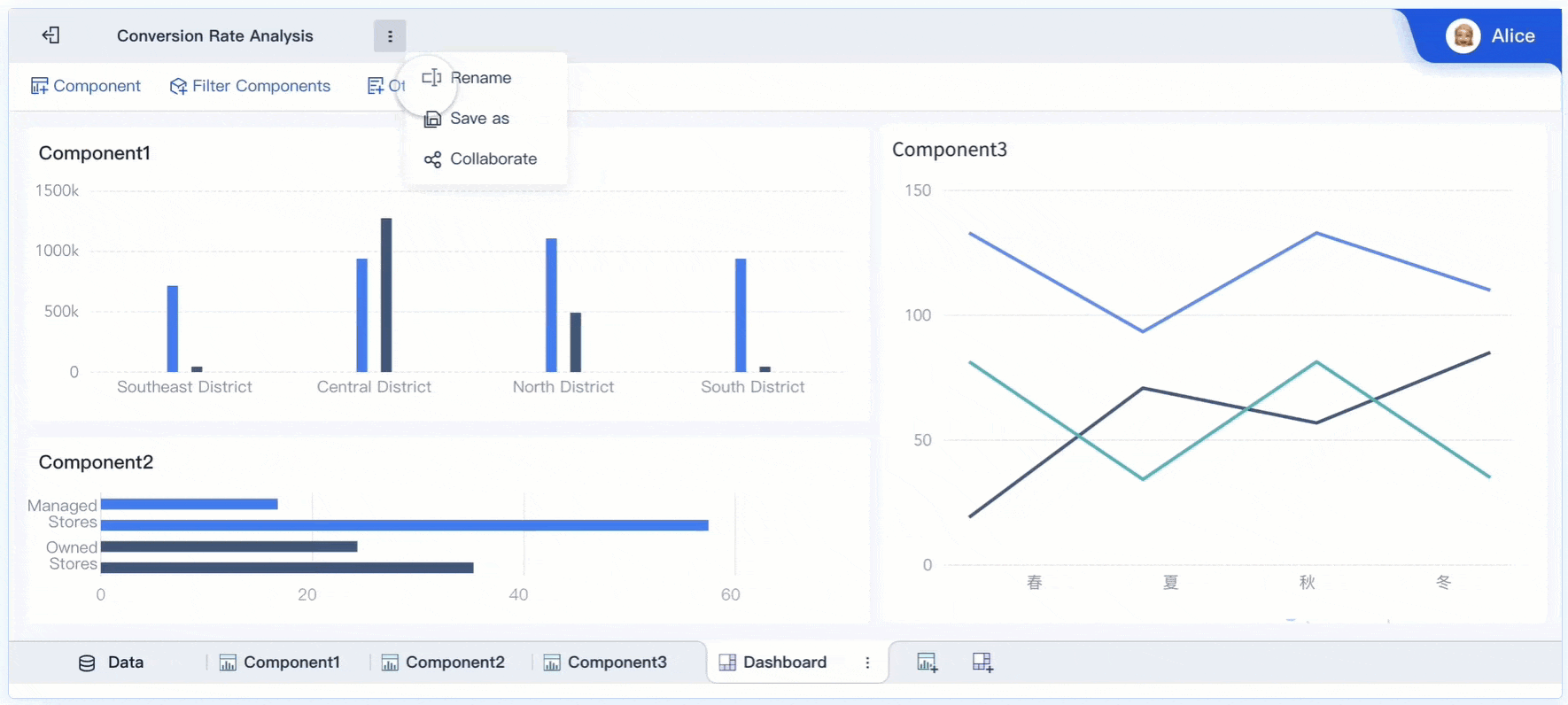
Tip: FineBI’s collaborative features help you share dashboards and insights with your team and leadership.
You need a strong mix of technical, analytical, and leadership skills. Most analytics managers have degrees in business analytics, computer science, or management. You should understand statistical analysis, data mining, and predictive modeling. You also need experience with BI tools and project management.
| Qualification Area | Description and Relevance |
|---|---|
| Business Analytics / Data Science | Covers statistical analysis, data mining, predictive modeling, and decision-making for data-driven strategy. |
| Computer Science / Info Systems | Provides programming, database management, and IT infrastructure knowledge for BI tools and technical teams. |
| Business Administration / Mgmt | Offers strategic, leadership, and project management skills to align BI initiatives with business goals. |
| Economics / Finance | Expertise in financial analytics, forecasting, and market dynamics for financial BI roles. |
| Statistics / Applied Mathematics | Strong quantitative and analytical skills for accurate data interpretation and robust BI solutions. |
| Minors (CS, Stats, Finance, etc) | Enhance technical, analytical, and communication skills for broader BI capabilities. |
| Practical Experience & Skills | Employers value hands-on experience and the ability to translate insights into strategic decisions. |
| Continuous Learning | Staying updated with BI tools, methodologies, and industry trends is vital for effective BI management. |
You play a key role as a data architect in any organization that wants to use data for smart decisions. You design the big picture for how data moves, gets stored, and stays safe. You act as a bi solutions architect, making sure every piece of data fits together and supports business goals. You help teams understand how to use data, and you make sure the systems are ready for future needs.
As a data architect, you wear many hats. You need to think about both the technical side and the business side. Here’s what you do every day:
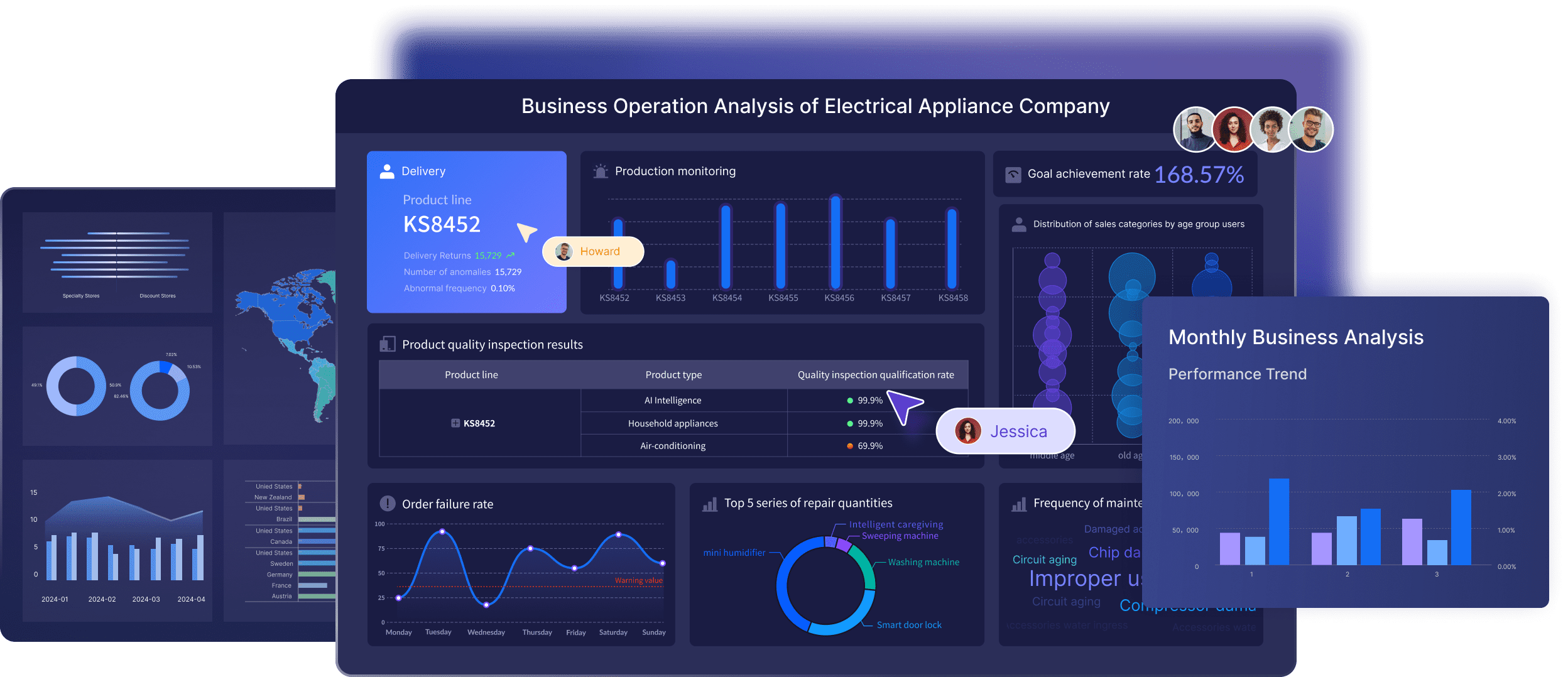
Tip: If you use platforms like FineBI from FanRuan, you can streamline your data architecture and make your job as a bi solutions architect much easier.
You need a mix of technical and communication skills. You should know about databases, data modeling, and cloud storage. You must understand data security and privacy laws. You also need to explain technical ideas to people who don’t work with data every day. Experience with BI tools like FineBI helps you stand out as a bi solutions architect.
Key skills:
You can expect a strong salary as a data architect. Most jobs pay between $110,000 and $160,000 per year in the United States. Senior data architects and bi solutions architects can earn even more, especially in large companies or tech hubs.
You help companies get the most out of their data as a BI consultant. You act as a bi solutions architect, guiding businesses on how to use BI tools and data strategies. You work with clients to understand their needs, set up BI systems, and train teams to use data for better decisions. You often use platforms like FineBI to deliver fast, effective solutions.
Your job as a BI consultant covers many areas:
Note: FineBI’s self-service features make it easy for you to empower clients and speed up BI adoption.
You need strong problem-solving skills and a deep understanding of BI tools. You should know how to work with data, build dashboards, and explain technical ideas to non-technical users. Experience as a bi solutions architect is a big plus.
Key skills:
Here’s what you can expect as a BI consultant in 2025:
| Salary Metric | Amount (USD) |
|---|---|
| Average Base Salary Range | $67,000 - $136,000 |
| Median Base Salary | $94,000 |
| Total Compensation Range | $69,000 - $150,000 |
| Entry-Level Salary | ~$65,503 |
| Early Career Salary (1-4 yrs) | ~$81,424 |
| Highest Reported Salary | $136,000 |
You make sure data stays accurate, safe, and useful as a data governance specialist. You set the rules for how data gets used and shared. You help build a data-driven culture and act as a bi solutions architect, making sure everyone follows best practices. You work with business and IT teams to keep data quality high and meet legal requirements.
You have a big impact on how organizations use data. Here’s what you do:
Note: If you use FineBI, you can track data quality and support governance efforts with real-time dashboards.
You need both technical and soft skills. You should know data governance frameworks, data management, and privacy laws. You must be able to lead teams, solve problems, and communicate clearly. Experience as a bi solutions architect helps you manage complex data environments.
Key skills:
Most data governance specialists earn between $85,000 and $135,000 per year. Senior roles or those with bi solutions architect experience can earn more, especially in regulated industries like healthcare and finance.
You step into the world of business intelligence as a machine learning engineer. In this role, you build smart systems that help companies make sense of their data. You use algorithms and models to find patterns, predict trends, and turn raw data into valuable insights. Your work connects the dots between complex data and real business needs. Companies count on you to help them stay ahead by using data in new and powerful ways. With tools like FineBI from FanRuan, you can create interactive dashboards that show the results of your models in real time.
As a machine learning engineer, you do much more than just write code. You work with large sets of data every day. Here’s what you usually handle:
Tip: If you use self-service BI tools, you can quickly turn your machine learning results into easy-to-read dashboards for your team.
You need a strong mix of technical and communication skills. You should know how to work with data, from collecting it to cleaning and organizing it. You must understand machine learning algorithms and how to use them with real business data. Programming skills in Python or R help you build and test your models. You also need to use SQL to manage data in databases. Experience with BI tools like FineBI, Tableau, or Power BI makes your job easier. You should be able to explain your work to people who don’t have a technical background. Curiosity and a love for learning new things will help you grow in this field.
Key skills for you:
You can expect a strong salary as a machine learning engineer in business intelligence. Most jobs pay between $105,000 and $154,000 per year. This range shows how important your skills are in today’s data-driven world. Companies want people who can turn data into smart decisions. If you have experience and can show real results, you may earn even more.
| Experience Level | Salary Range (USD) |
|---|---|
| Entry-Level | $105,000 - $120,000 |
| Mid-Level | $120,000 - $140,000 |
| Senior | $140,000 - $154,000+ |
Note: The growing need for data-driven strategies means you will find many opportunities in this field. Your ability to turn data into business value makes you a key player in any company.
When you step into business intelligence jobs, you want tools that make your work easier and faster. FineBI from FanRuan gives you just that. You can connect to many types of data, analyze it, and share your findings with your team. FineBI stands out because it is simple to use but powerful enough for big tasks.
Here’s what you get with FineBI:
Tip: FineBI’s self-service features mean you can answer business questions on your own, making you more valuable in your role.
You need a BI tool that connects to all your data sources and keeps everything running smoothly. FineBI makes integration simple and flexible. You can connect to databases, cloud platforms, and even big data systems. FineBI’s integration features help you manage data from many places, so you always have what you need for analysis.
Let’s see how FineBI compares to another popular BI tool, Yellowfin:
| Aspect | FineBI | Yellowfin |
|---|---|---|
| Integration & Deployment Rating | 5.0 (2 reviews) | 4.4 (119 reviews) |
| Ease of Integration (APIs & Tools) | 5.0 (2 reviews) | 4.0 (96 reviews) |
| Data Source Connectivity | 4.0 (2 reviews) | 4.3 (39 reviews) |
| Integration Features | Self-service datasets, real-time processing, drag-and-drop GUI, ETL tools, cloud deployment, enterprise security | Strong integration, third-party support, team data sharing |
| User Base & Reviews | Smaller user base, perfect integration scores | Larger user base, strong integration ratings |
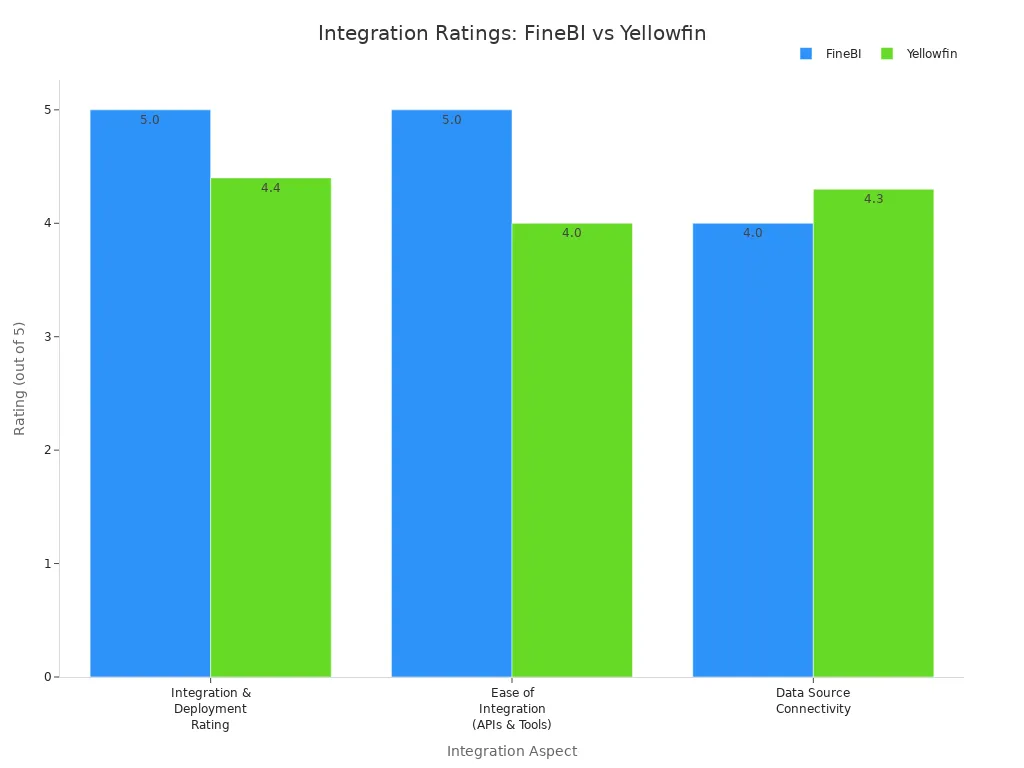
You can see that FineBI scores high for integration and ease of use. This means you spend less time setting up and more time working with your data.
In business intelligence jobs, you need answers fast. FineBI helps you get real-time feedback on your data. You can check your dashboards and see the latest results right away. This tool improves your data analysis speed by at least 50% compared to old methods. You can spot trends, fix problems, and make decisions without delay.
Note: With FineBI, you never have to wait for data updates. You always work with the most current information, which makes your job easier and your insights more valuable.
When you work in business intelligence, you want tools that let you take control of your own data. FineBI from FanRuan gives you the power to do just that. You don’t have to wait for IT or be a tech expert. With FineBI, you can explore, analyze, and share data on your own, making your job easier and your team stronger.

FineBI makes self-service analytics simple. You get an intuitive drag-and-drop interface. You can connect to different data sources, prepare your data, and build dashboards—all without writing code. This means you can answer business questions fast and show your findings to others right away.
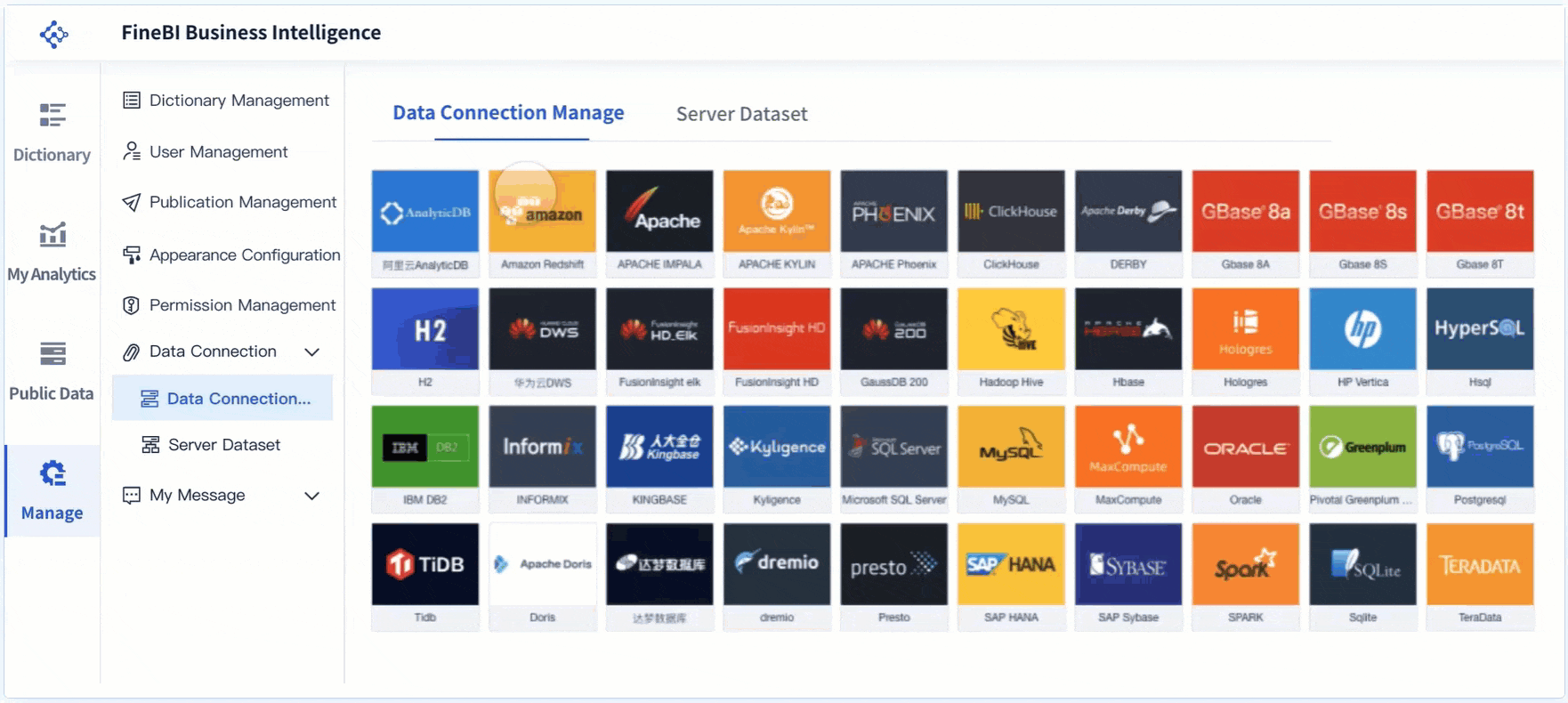
FineBI covers the full business intelligence workflow. You start with data preparation, move to processing, then visualization, and finally sharing. Each step is designed for users of all skill levels.
Here’s how FineBI helps you and your team work better together:
Here’s a quick look at what you can do with FineBI:
| Feature | What You Can Do |
|---|---|
| Drag-and-drop analysis | Build reports and dashboards without coding |
| Subject collaboration | Work with teammates on shared data projects |
| Dashboard sharing | Publish and share insights across your company |
| Real-time exploration | See the latest data and respond quickly |
You don’t just analyze data—you share knowledge and drive better business outcomes. FineBI helps you master analysis skills and makes collaborative data exploration part of your daily routine. When everyone can access and understand data, your whole organization becomes more agile and informed.
You might wonder what skills help you stand out in business intelligence jobs. Companies want people who can work with data every day. If you know how to collect, clean, and analyze data, you already have a head start. Many employers look for skills in SQL, Python, and data visualization. You should also know how to use BI tools like FineBI. These tools help you turn raw data into clear charts and dashboards.
If you want to become a data analyst or a business analyst, you need to understand how to find patterns in data. You should practice building reports and telling stories with numbers. Communication matters just as much as technical skills. You will often explain your findings to people who do not work with data. Problem-solving and critical thinking help you answer tough questions. Companies also value teamwork, so you should learn how to share your work and help others.
Tip: If you want to move into a data scientist role, start by learning how to build models and use machine learning. This skill set is in high demand and can open new doors for your career.
You have more choices than ever about where you work. Many business intelligence jobs now offer remote or hybrid options. You can work from home, from the office, or a mix of both. This flexibility helps you balance your job with your personal life. Employers know that you can analyze data and build dashboards from anywhere. As long as you have a good internet connection, you can join meetings, share reports, and solve problems.
Remote work also means you can join teams from different cities or even countries. You might work with a data analyst in New York and a business analyst in London. This setup lets you learn from others and see how different companies use data. You can also find more job openings because you are not limited by location.
You can find business intelligence jobs in almost every industry. Companies in healthcare, finance, retail, and manufacturing all need people who can work with data. If you like helping hospitals improve patient care, you can join a healthcare team. If you enjoy tracking sales and customer trends, retail companies need your skills. Banks and insurance firms hire data analysts to spot risks and find new business opportunities.
You might also work for a tech company, a government agency, or a school district. Each sector uses data in its own way. For example, a business analyst in manufacturing might focus on supply chain data, while a data analyst in education looks at student performance. No matter where you work, your ability to turn data into insights will help you grow your career.
You might wonder what your future looks like if you choose a career in business intelligence. The good news? You have a lot of room to grow. Companies everywhere need people who know how to work with data. As you gain experience, you can move up fast and take on bigger challenges.
When you start out, you may work as a data analyst or junior business intelligence analyst. You spend your days collecting data, cleaning it, and building simple reports. Over time, you learn how to spot trends and tell stories with data. You also get better at using tools like FineBI to make your work easier.
After a few years, you can step into roles like senior analyst, BI developer, or even analytics manager. In these jobs, you lead projects and help others understand the value of data. You might design dashboards, manage data pipelines, or train new team members. Your skills with data become more advanced, and you start to see the big picture.
If you love solving problems, you can become a data scientist or machine learning engineer. These roles let you build models that predict what will happen next. You use data to answer tough questions and help your company stay ahead of the competition. You also get to work with the latest technology and learn new things every day.
Some people choose to become data architects or BI consultants. In these jobs, you design systems that help companies use data better. You might work with different teams, set up new tools, or create rules for how data gets used. You become the go-to person when someone has a question about data.
Here are a few ways you can boost your career growth in business intelligence:
Tip: The more you know about data, the more valuable you become. Companies reward people who can turn data into smart decisions.
You have the chance to shape your own path. Whether you want to lead a team, become an expert in data, or help companies make better choices, business intelligence gives you the tools to succeed.
You have a world of opportunity in business intelligence jobs. If you want to grow as a data analyst or business analyst, start by building your data skills. Practice working with data every day. Try new data tools like FineBI from FanRuan. Explore data sets, create dashboards, and share your data insights. Update your resume with your best data projects. Connect with others who love data. Stay curious. You can shape your future with data.
What Does a Business Intelligence Developer Do in 2025
What Does a Business Intelligence Engineer Do in 2025
Top Business Intelligence Tools to Explore in 2025
You need to know how to work with data. Learn SQL, Excel, and a BI tool like FineBI. Practice building dashboards. Communication and problem-solving skills help you stand out.
Yes! Many companies hire people with business, math, or even liberal arts backgrounds. Show your skills with real projects or certifications. Curiosity and a willingness to learn matter most.
FineBI lets you connect to data, build dashboards, and share insights—all without coding. You can answer business questions fast and work with your team easily. It makes your job simpler.
Absolutely! Many BI jobs let you work from home or choose a hybrid setup. You just need a good internet connection and the right tools. You can join teams from anywhere.
You can find BI jobs in healthcare, finance, retail, manufacturing, tech, and more. Every industry needs people who can turn data into smart decisions.
Start by learning basic data skills. Build a portfolio with sample dashboards or reports. Try a free trial of FineBI. Connect with others in the field and keep practicing.
Most BI analysts earn between $70,000 and $125,000 per year. Your pay depends on your experience, skills, and where you work. Top cities and big companies often pay more.
Not always. Many BI tools like FineBI use drag-and-drop features. Knowing SQL or Python helps, but you can start with basic data skills and learn more as you go.

The Author
Lewis
Senior Data Analyst at FanRuan
Related Articles
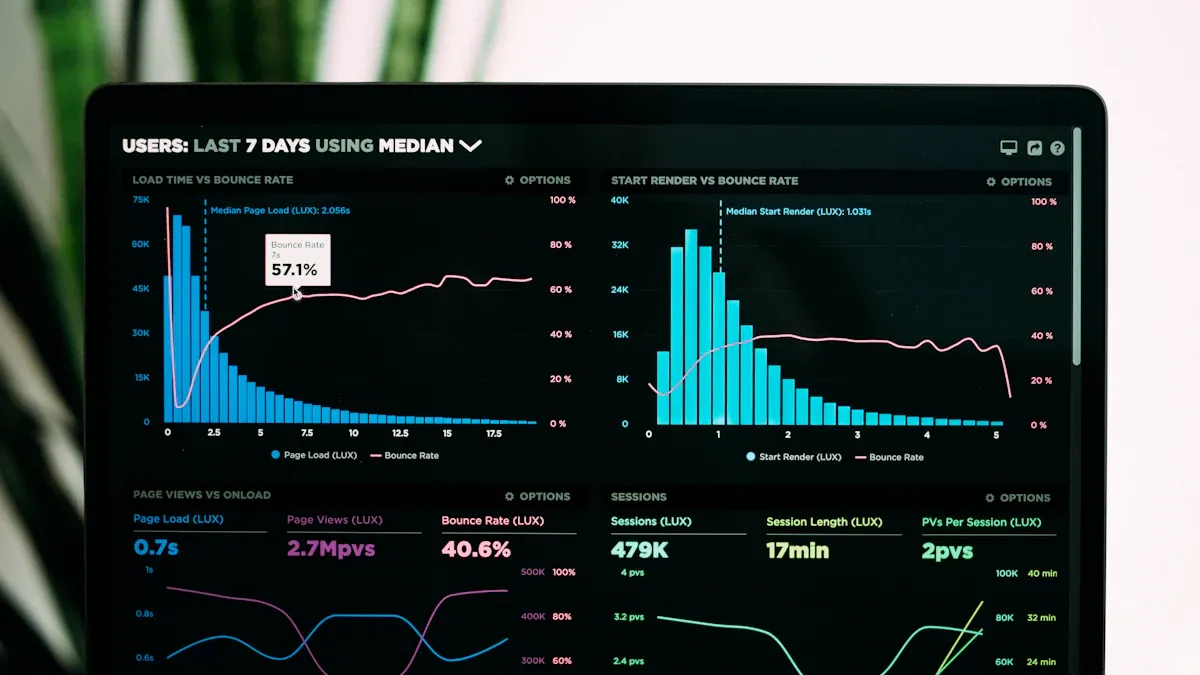
What is a Business Intelligence System and How Does It Work
A business intelligence system collects, analyzes, and visualizes data, turning raw information into actionable insights for smarter business decisions.
Lewis
Jan 04, 2026

Top 3 Retail Management Software Picks
Compare the top 3 retail management software. See features, pricing, and which solution fits your business needs for inventory and sales.
Lewis
Dec 30, 2025

What Are Enterprise BI Solutions and How Do They Work
Enterprise BI solutions unify business data, enabling real-time analytics, secure collaboration, and smarter decision-making across your organization.
Lewis
Dec 22, 2025